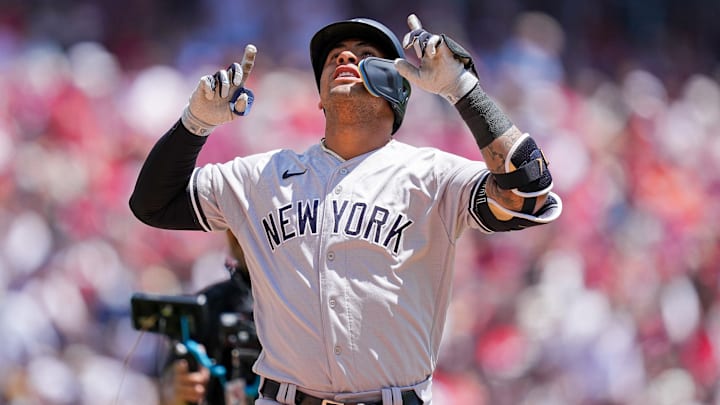The New York Yankees took a big step forward this week, showing a willingness to swallow the endgame of Aaron Hicks' seven-year extension to make the current big-league roster better.
Is a Josh Donaldson DFA next? Who's to say? Either way, the Yankees finally decided to look a loss in the eyes and call it a loss. It should be easier for the Yankees to shake off a long-term mistake than, say, the Reds or Royals. They should be able to sign who they want to sign, extend who they want to extend, and say, "Damn the luxury tax!" knowing full well that if something goes sideways, they can always get out of it by opening up their coffers and spending even more money.
Better safe than sorry, though, especially since the Hicks maneuver was a long time coming.
More often recently, the Yankees have taken on bad money (Josh Donaldson, some would say Giancarlo Stanton) and allowed it to hold them hostage. The whole point of this franchise is they can make mistakes others can't. If they're going to contend that their payroll is clogged, though, they shouldn't be allowed to make any more premature or unnecessary extensions.
For one winter and one winter only, the Yankees felt generous, guaranteeing seven years to Aaron Hicks and four additional seasons to Luis Severino before the 2019 campaign. Neither player has seen the field all that much since those deals were signed. New York's generosity has remained a cautionary tale and, if they're going to insist on acting this way, they should avoid getting into deep conversations with another pair of roadblocks.
Yankees should halt any contract extension talks with Gleyber Torres
Gleyber Torres is a top-10 offensive second baseman in the game right now. If the Yankees want to reach their ceiling in 2023, they need to keep him around -- and keep him happy.
They shouldn't be tempted, though, to extend him and create another blockade in the infield, lowering their leverage significantly in any forthcoming Oswald Peraza trade.
Torres has been a different player since leaving any designs of playing shortstop behind. As a full-time second baseman, he's been competent with the glove, outside of a few occasional lapses. Where he really shines, though, is at the bat; Torres smashed 24 home runs last year and wrapped with a 114 OPS+, and seems on pace for similar totals this season.
That's the exact level of production that qualifies as, "Too good to move, not good enough to pay to stick around." Torres has always suffered from the burden of high expectations. He was a top-20 prospect nationally when he arrived, and he hit 38 home runs as a 22-year-old in 2019. Little did we know, at the time, that the baseball itself was wound tighter than ever before that year, and that Torres was about to be wound pretty tightly, too, after being pressed into shortstop duty.
His production is certainly competent, but he'll likely never be the type of alpha star that seemed to be foretold four years ago. Peraza wouldn't be a better fit at the position now, the midway point of an important season, but he could easily provide similar production (with elite defense) entering 2024. Torres should be kept, for the time being, but he is more likely to be traded than extended.
